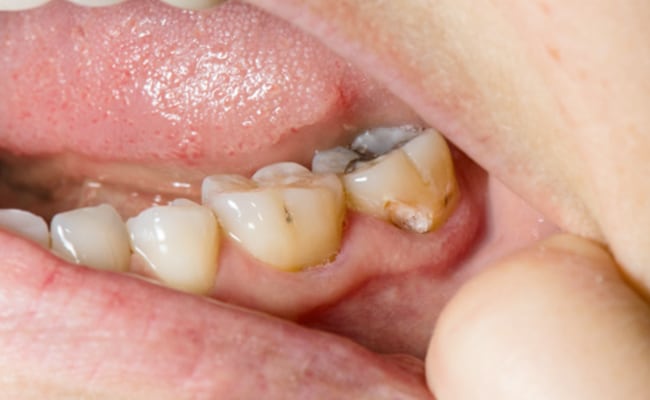Below we discuss what habits can lead to tooth decay and habits that can help prevent it.
Sugary and acidic foods can contribute to tooth decay
Tooth decay, also known as tooth decay or tooth decay, is a common oral health problem caused by bacteria that produce acid from food particles and plaque on the teeth. It is essentially the destruction of tooth structure caused by acids that gradually eat away at the enamel (outer protective layer) and dentin (inner layer) of the tooth. Keep reading as we discuss what habits can lead to tooth decay and habits that can help prevent it.
6 habits that could lead to tooth decay
1. Poor oral hygiene
Not brushing your teeth at least twice a day and flossing regularly can lead to the buildup of plaque and bacteria, which can cause tooth decay.
2. Consumption of foods and drinks with sugar
Frequent consumption of sugary snacks, sodas and other sweet treats provides food for the bacteria in your mouth, increasing the risk of tooth decay.
3. Infrequent visits to the dentist
Skipping regular dental checkups and professional cleanings can allow dental problems to go unnoticed and untreated, potentially leading to tooth decay.
4. Smoking and tobacco use
Tobacco products can increase the risk of tooth decay and gum disease as they contain harmful chemicals that damage teeth and gums.
5. Alcohol consumption
Drinking too much alcohol can cause dry mouth, which reduces saliva production. Saliva helps neutralize acids and protect against tooth decay, so a lack of saliva can increase the risk of tooth decay.
6. Using teeth as tools
Using your teeth to open packages, crack nuts, or bite into non-food items can lead to broken or cracked teeth, creating areas for bacteria to build up and cause tooth decay.
6 habits that will help you prevent tooth decay
1. Brush your teeth at least twice a day
Brushing helps remove plaque and bacteria that can lead to tooth decay. Make sure you use a fluoride toothpaste and a soft-bristled toothbrush.
2. Floss daily
Flossing helps remove plaque and food particles between your teeth and along the gum line, where a toothbrush can’t reach effectively. This prevents tooth decay in those hard-to-reach areas.
3. Limit sugary and acidic foods and drinks
Sugary and acidic foods can contribute to tooth decay. Try to minimize the consumption of candy, soft drinks, fruit juice and other sweet treats. If you consume them, rinse your mouth with water afterwards or brush your teeth to reduce the impact on your dental health.
4. Avoid frequent snacking
Frequent snacking can increase your teeth’s exposure to sugars and acids. When snacking, choose healthy options such as fruit, vegetables and cheese, as they have less harmful effects on your teeth.
5. Chew sugar-free gum
Chewing sugar-free gum stimulates saliva production, which helps wash away food particles and neutralize acids in the mouth. Look for gum that contains xylitol, as it has been shown to have additional cavity-preventing properties.
6. Visit your dentist regularly
Regular dental checkups and cleanings are vital to preventing tooth decay. Your dentist can detect and treat any early signs of tooth decay, as well as provide professional cleaning to remove plaque and tartar buildup.
Maintaining good oral hygiene can help reduce your risk of tooth decay.
Disclaimer: This advice content provides general information only. It is in no way a substitute for a specialist medical opinion. Always consult a specialist or your own doctor for more information. NDTV takes no responsibility for this information.


